Editor's note: Vietnam has great potential to develop the digital asset market, with 17 million people owning this type of asset (by 2024). Despite the great potential, for the digital asset market to operate safely and stably, careful preparation and close coordination between management agencies and market participants are needed.
Encourage the private economic sector to participate
By 2024, the number of Vietnamese people owning cryptocurrency assets is 17 million, ranking 7th globally. This information was given by Mr. Phan Duc Trung, Chairman of the Vietnam Blockchain and Digital Asset Association, at the training session on "Legal framework and identification of crypto asset fraud" organized by the Vietnam Blockchain and Digital Asset Association and 1Matrix Company on August 8.
According to the Vietnam Blockchain and Digital Asset Association, the number of Vietnamese people owning cryptocurrency assets in 2024 has decreased by about 4 million people compared to 2023 - when up to 21 million Vietnamese people owned this digital asset and ranked 3rd in the world .
This is a new and potential market, but it is still in a legal "gray zone" in our country because it has not been officially recognized, creating great risks for investors. However, at the regular Government press conference in July organized by the Government Office recently, Deputy Minister of Finance Nguyen Duc Chi said that the Ministry of Finance is drafting a Resolution on piloting the issuance and trading of crypto assets in the country, based on studying the experiences of countries in the region and internationally as well as evaluating the participation of Vietnamese citizens in buying and selling crypto assets.
The Ministry of Finance has reported the project to the Government, and then the Government has also reported to the Politburo to request approval for the pilot implementation. After the Politburo's conclusion, the Ministry of Finance will continue to complete according to the direction and submit to the Government to issue relevant regulations to organize the pilot. If the review and approval process is favorable, it is expected that the pilot implementation can begin in August 2025.

According to Deputy Minister Nguyen Duc Chi, the ministry will clarify the criteria, conditions and standards for selection. These requirements will include information technology, technical processes, financial capacity and expertise of the registering unit. After completing the specific criteria, the Ministry of Finance will publicly and transparently announce these conditions for selection.
A notable point in the project is that the Ministry of Finance proposes to encourage the private economic sector to participate in providing services in the crypto-asset market. This proposal is completely consistent with the spirit of Resolution No. 68-NQ/TW dated May 4, 2025 of the Politburo on private economic development, while creating conditions for capable and creative enterprises to participate in new fields.
During the pilot phase, more than one trading floor will be allowed to operate, in order to create a healthy competitive environment. However, the number will be controlled at a reasonable level to facilitate monitoring and evaluating the effectiveness after the pilot. The pilot phase will last 5 years from the date the Government's Resolution takes effect, in order to ensure that businesses have enough time to operate the system and that state management agencies have enough information to comprehensively evaluate the pilot phase.
There will be 10 laws regulating digital finance.
Providing more specific information about the draft Resolution on pilot implementation of issuance and trading of crypto assets, Mr. To Tran Hoa, Deputy Head of the Securities Market Development Department (State Securities Commission), said that the draft Resolution stipulates that organizations operating crypto asset trading floors must meet many strict conditions, such as a minimum charter capital of VND 10,000 billion, a technology system that meets level 4 information security standards, conditions on shareholders, personnel, business processes, transaction supervision and transparent internal management.
Issuance and trading through licensed crypto-asset service providers aims to ensure transparency, limit financial risks, secure information and prevent illegal activities (money laundering, terrorist financing).
In addition, the draft Resolution also requires further details on the shareholder structure: 65% of capital is owned by organizations, of which 35% of capital must come from 2 of 5 types of organizations: commercial banks, securities companies, fund management companies, insurance companies, companies operating in the technology sector; the ownership ratio of foreign capital is not more than 49%...
The regulator does not intend to “prioritize” any of the above five types of organizations, but because the company operating the digital asset exchange requires the basic platforms that the five groups of businesses above have available, helping the digital asset exchange to operate immediately, without waiting for testing.
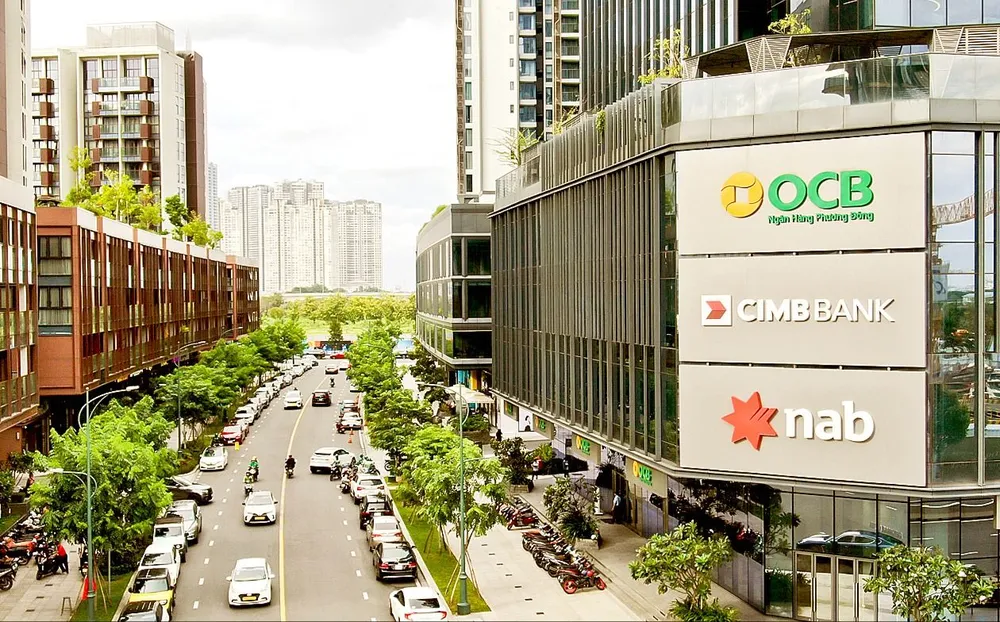
Another issue of concern is security and network safety for the market. According to Lieutenant General Nguyen Minh Chinh, Vice President of the National Cyber Security Association, to develop a safe and healthy Vietnamese blockchain data ecosystem, it is necessary to focus on three key issues: designing security standards from the beginning with blockchain infrastructure; improving the ability to detect early and respond quickly to cybersecurity; ensuring compliance with laws approaching international standards, development must be associated with regulations on anti-money laundering, personal data protection, and capital flow control.
From the perspective of the state management agency, Mr. Nguyen Khac Lich, Director of the Department of Information Technology, Ministry of Science and Technology, emphasized that to achieve double-digit growth as expected by the Government and the target set by the National Assembly, there needs to be a new space for development, in which the focus is to find a new driving force for growth. That new space is the digital space, created from digital technology, digital devices, digital transformation, with open regulations and strong support policies.
According to Mr. Nguyen Khac Lich, the Government's viewpoint is to encourage innovation on the basis of legal regulations. There will be about 10 laws regulating issues related to innovation, technology, and digital finance. These include laws that have been passed (Law on Digital Technology Industry, Law on Data, Law on Science - Technology and Innovation...) and laws that are being considered and implemented (Law on Electronic Transactions, Law on Digital Transformation...).
In the immediate future, the Law on Digital Technology Industry with specific regulations on crypto assets will help 21 million people who own this type of asset get out of the legal "gray zone". In the long term, the Law on Digital Technology Industry and the above legal regulations will create a complete legal ecosystem for the digital space and digital economy.
Mr. Pham Tien Dung - Deputy Governor of the State Bank:
Ready legal framework for digital assets
Vietnam has officially formed a legal foundation for digital assets through three important legal events: The National Assembly passed a resolution on the development of financial centers, which allows the construction of specialized trading floors, including crypto-asset trading floors - a content that demonstrates the spirit of innovation and is in line with global technology trends. The Ministry of Finance has submitted to the Government a draft Resolution on piloting the issuance and trading of crypto-assets.
Accordingly, blockchain is identified as the core technology of the infrastructure for operating and monitoring transactions. The Law on Digital Technology Industry has officially defined clearly the concepts related to digital assets, virtual assets and encrypted assets, creating a legal corridor to build a specific regulatory system in this new field. On that basis, Vietnam will pilot a crypto asset trading floor at an international financial center, creating a breakthrough in the process of integration and development of the financial technology market.
Associate Professor, Dr. Tran Hung Son - Director of the Institute for Banking Technology Development Research (University of Economics and Law, Vietnam National University, Ho Chi Minh City):
Bring many benefits to the economy
Building a legal framework for digital assets in Vietnam will bring many economic benefits, such as collecting transaction taxes, attracting foreign capital and supporting startups. However, the biggest desire of investors for cryptocurrency exchanges in Vietnam is transparency - from legal to operating system, to protect investors from risks and manipulation.
Therefore, it is necessary to complete a clear legal framework on digital assets, have an independent monitoring mechanism, publicize transaction information, asset insurance and an effective dispute resolution process. In addition, there is a need for flexible tax policies, clear foreign exchange management, standardization of cross-border declaration and transaction processes, and enhanced financial education for investors.
Mr. Le Manh - Chief Technology Officer of Kyber Network:
Improve human resources
Vietnamese blockchain companies have high-quality human resources in the platform and system building sectors. Their strengths also lie in the speed of development and rapid problem solving, but they lack confidence. This needs to be improved soon so that Vietnamese blockchain businesses can reach a larger scale.
Source: https://www.sggp.org.vn/soi-suc-mieng-banh-tai-san-so-ty-usd-buoc-ra-khoi-vung-xam-phap-ly-post810148.html








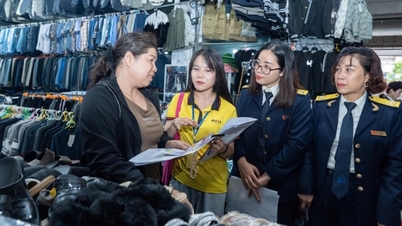







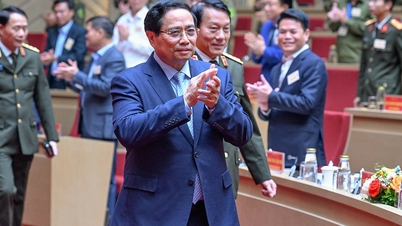







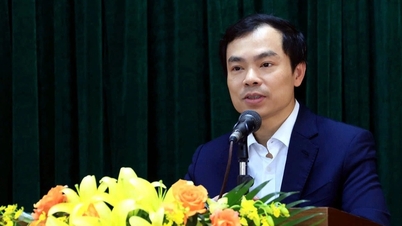












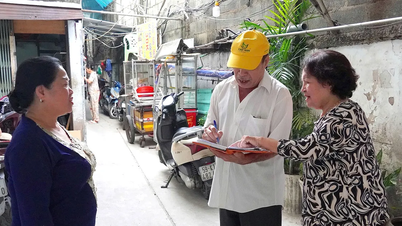









































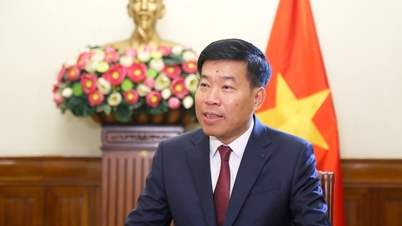











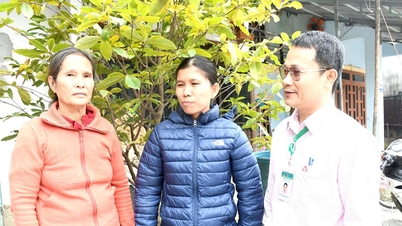




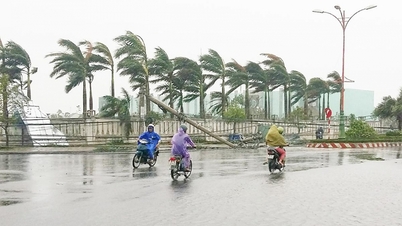












Comment (0)